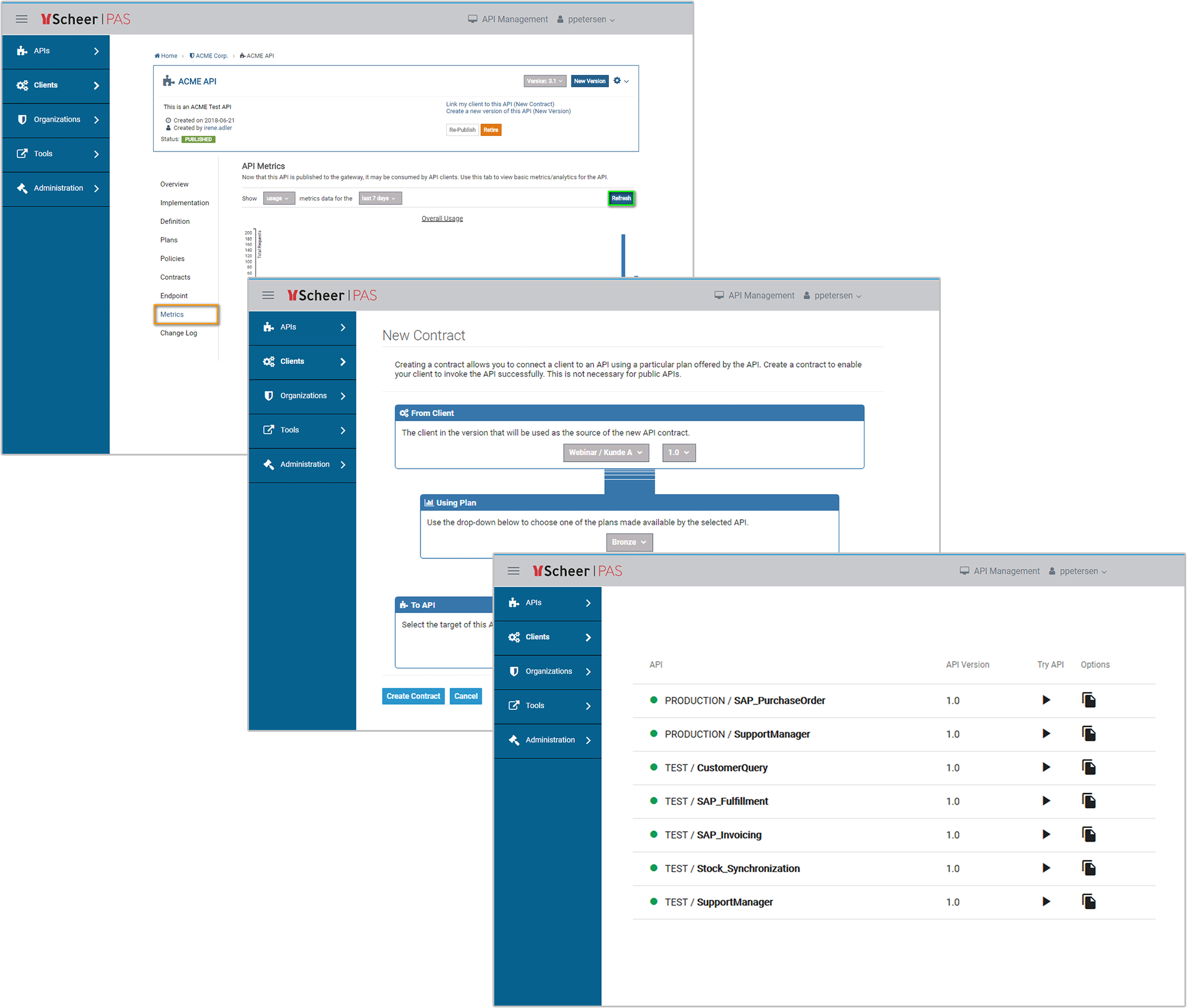Got all your interfaces under control?
APIs or program interfaces are program components that make an application available to other systems for connection purposes. This also includes detailed documentation of the interface functions with their parameters. But why are APIs and their professional management so important?

Data protection, compliance and data security
Companies must meet the highest standards when it comes to compliance, data protection and data security. Therefore, risk minimization should be at the core of any API solution. This rules out, as far as possible, the opportunities for unauthorized access to datasets, infringements of data integrity, and compromises to the company’s internal infrastructure. A reliable API gateway solves these problems. In this case, the technical details are not as important as the business benefits: Improved speeds in B2B- and B2C processes, greater security and problem-free data exchange across system boundaries.
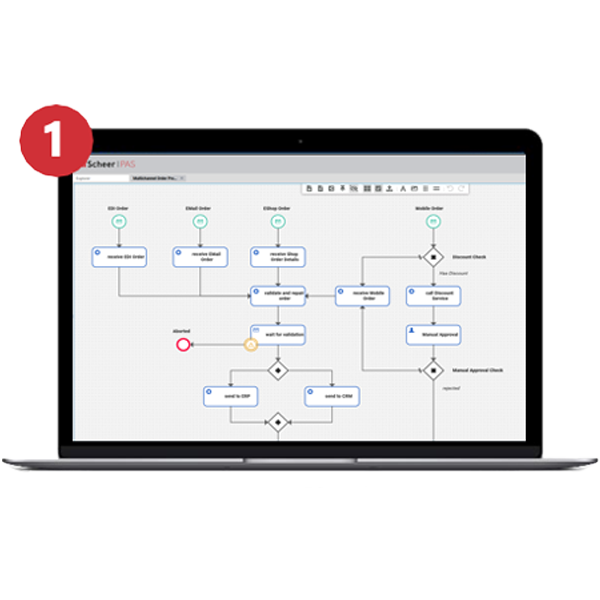
Define the API
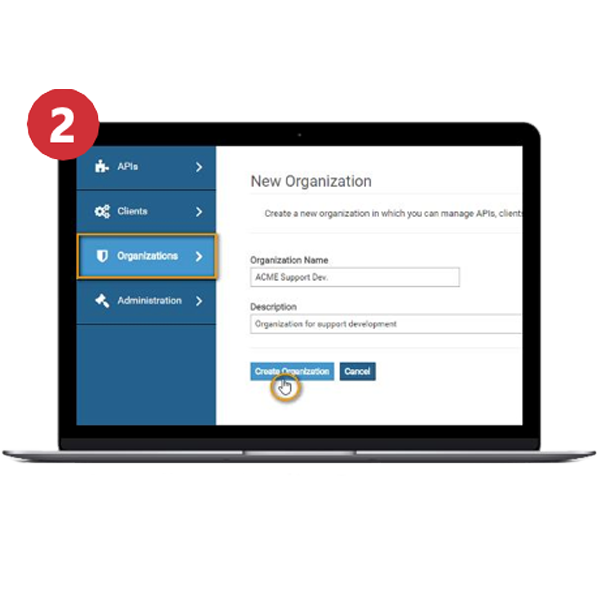
Create the organization
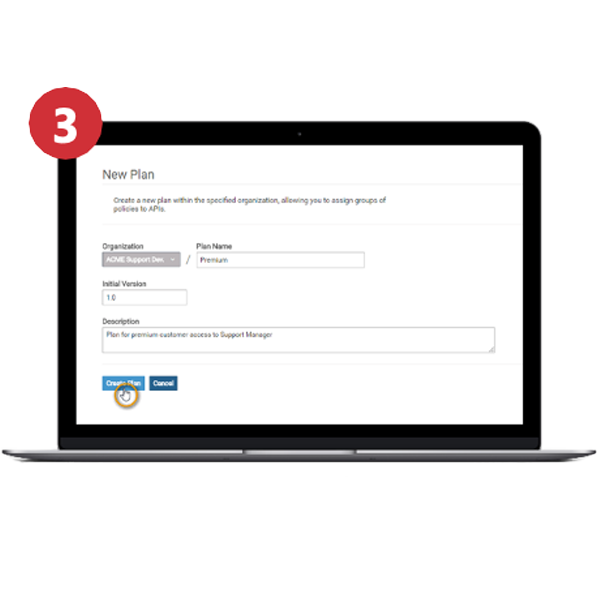
Create the plan
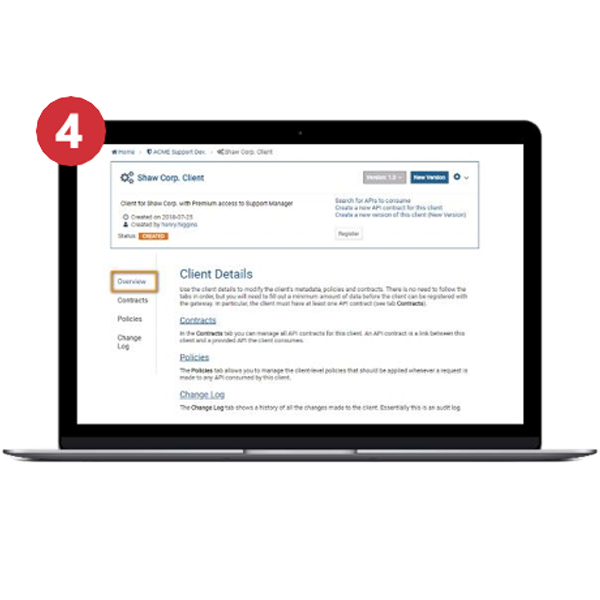
Create the client
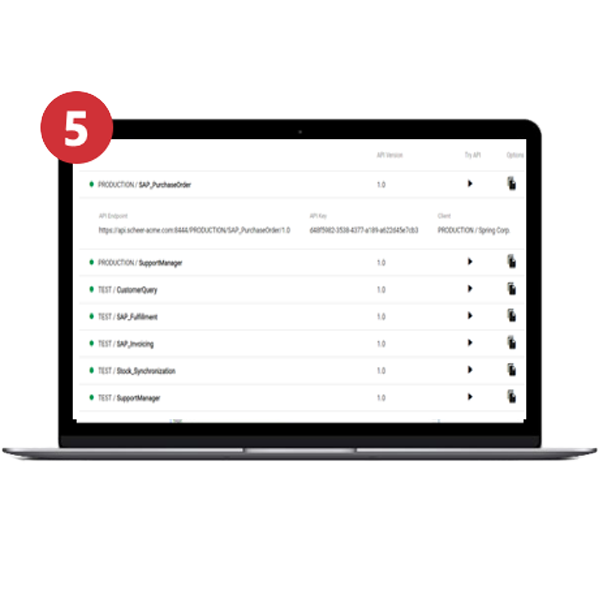
Test the API
Deployment of APIs has become the norm.
By 2017, according to a survey by CA Technologies, some 84 percent of German companies were using APIs to develop web applications. Approximately 82 percent use them to integrate back-office applications, whereas 74 percent have integrated services from third-party suppliers. However, the deployment of APIs continues to be mainly uncoordinated with no central management. This involves risks regarding functionality but, more importantly, risks to the security of corporate data.
Interface as a risk factor?
Via program interfaces, you make functions and data of your company IT available to others, you open up your IT to the outside world. If you want to guarantee security of the data, you must have control of the interfaces used. This means that you must develop, manage, control and secure the interfaces, just as you do any other software components. If this is not done, in a worst-case scenario, the interfaces can become a gateway for hackers.
API management supports you with optimized and controlled deployment of APIs. The main components are
- an interface catalog as an API directory or registry
- an API Gateway
- for publication of the available program interfaces
- for control of API access points
- for management of API traffic
- for analysis of API use
- a developer portal with API information, test options, and functions for API implementation
More than interface management






